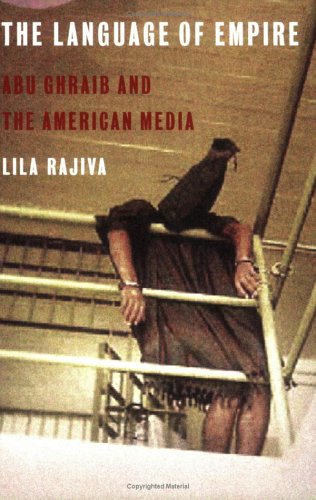A while ago I wrote an article suggesting that for some libertarians it might be time to run.
I still think it is. But I also think your journey abroad should be reasoned and carefully planned, or it could leave you worse off, not better. Run smart, not stupid.
To help you do that, here are some things I’ve learned from years of going back and forth across the world. I’ve grouped them under four headings that express fundamental elements of a libertarian stance in the world.
- Connectivity (the free market is all about communicating and persuading)
- Security (libertarians should take the initiative in defending themselves)
- Simplicity (less always makes for more independence)
- Flexibility (don’t resist change; it’s the essence of the free market)
I. Get Connected
You can’t travel freely if you aren’t able to take care of family or business problems quickly from wherever you are. You can forget about phone calls for that. You won’t always be in a time-zone that allows you to call, your bank’s local line isn’t going to be as accessible, and that 800 number you used to call at home won’t work from overseas. Also, endless international phone-calls won’t help your budget.
The solution? Get online.
Before you board your flight, make sure you have online access to your family and friends, your doctor, lawyer, banks and insurance companies. Skype is the simplest way to keep in touch abroad and it doesn’t cost a dime. Get accounts for yourself and for your family and friends before you leave.
Here’s the way to carry around your account information.
- Write down all the user names and passwords to the websites carrying your business and financial accounts. Be sure to disguise them so that no one else will be able to figure out what they mean and which accounts they refer to.
- Keep the email addresses, phone numbers, and physical addresses of your contacts in a separate spot.
- Write down the actual account numbers and financial information in a third place.
Now, make two or three copies of this vital information on tiny cards, and leave one in a locked drawer at home. Put another into the wallet or purse you always carry with you, and leave the third with the person you trust the most.
 Mobs, Messiahs, and Ma...
Best Price: $0.25
Buy New $8.01
(as of 04:35 UTC - Details)
Mobs, Messiahs, and Ma...
Best Price: $0.25
Buy New $8.01
(as of 04:35 UTC - Details)
If you have excellent computer security, you can also save this information in an encrypted and password-protected file on your laptop. But with all the security threats around, I would avoid this.
Make sure you have a reliable laptop computer to travel with. If all you’re doing is emailing and browsing, a net-book — a smaller, more portable laptop — should be enough. You can find good ones on sale for under $200. Make your purchase well before you travel to avoid lugging around a lemon.
Make sure that your cables and plugs are compatible with the outlets in the countries you’re visiting. Get onto an online forum and ask for specific details. Something as simple as an adapter might not be available locally in exactly the shape you need, so buy it before you leave. Electronic items are usually much more expensive abroad than in the US and you’re probably not going to save anything by trying to buy them abroad. Buy adapters, DSL cables, converters, and surge-strips, wrap them carefully, and label and number them so you don’t lose track of them while moving around.
II. Get Secure
If you plan to use hot-spots for your wireless, make sure you have extra strong security. It’s easy for trojans and viruses to attack your computer through unsecured wireless connections, which means thieves could steal your bank information and credit card numbers.
Don’t rely on just one security system. You need different kinds of software to protect you from different threats. Learn which security tool protects you from what, and research and keep up to date with new threats. Spyware, viruses, trojans, rootkits, phishing attacks, malware and adware all need different kinds of protection.
Security programs can also interfere with each other or make your laptop unbearably slow. So practice playing computer-doctor before you go abroad. If you’re not ready to do that, make sure you have an extended warranty and a technical support line you can call from overseas.
Before you leave, install any software you might need, check all your settings, and make note of them, so if your laptop crashes abroad, you’ll know what the default settings are.
Write down your computer’s web address — it’s IP (Internet Protocol) number. If you feel you need it, get some kind of encryption or proxy to hide it. That should give you some online privacy when emailing or surfing. But be warned that most programs won’t give you complete protection against determined enemies. They’re mainly intended to deter casual attacks.
For bigger trouble, keep the phone numbers and email addresses of a couple of tech-savvy friends on hand.
A few safety precautions:
- If you belong to any social networks like Facebook, avoid posting detailed information about where and for how long you’re traveling. Thieves have been known to use this information to break into houses.
- Never leave a laptop in a hotel room, even in a locker, unless you’re absolutely sure of the place and have been there for at least two weeks. If you store the laptop inside a locker, get that in writing from the management
- Always carry your passport, money, and vital information on your person. Never leave them in a hotel, even locked up. I always wear my purse diagonally across the chest with the clasp facing inward and the pouch in front. This way it can’t be snatched or even touched without my noticing.
 The Language of Empire...
Best Price: $3.92
Buy New $10.30
(as of 03:45 UTC - Details)
The Language of Empire...
Best Price: $3.92
Buy New $10.30
(as of 03:45 UTC - Details)
III. Keep It Simple
I’ve been living abroad for over a month now. My luggage consists of four items:
- A small purse carrying vital information, passport, credit cards, and money.
- A small raffia bag that folds up easily. It holds a few toilet articles, an umbrella, a face-cloth, pen and paper, and a disposable camera. It’s what I carry ordinarily on the street. Anything in it can be replaced without great loss.
- A padded computer bag with my laptop inside. I pack wires, attachments and flash drives separately, since laptops have to be unpacked in security.
- A duffel bag for clothes. I find duffel bags are easier to stow overhead or under the seat on a plane.
How much do you need in the way of clothing?
The less the better. From many years of packing I’ve learned that you can live anywhere quite easily for a month or two in two pairs of pants, a dress or skirt, a fitted t-shirt, a top, a few pairs of leggings, a couple of sweaters that can be layered or worn separately, and two pairs of shoes. Any umbrella you take should be foldable.
Stick with black and solid colors that can be mixed and matched. Take clothes that can do double duty at night. Leggings, for instance, can be worn under trousers on a cold day, worn by themselves on a hot day, and slept in. Everything worn next to your body should be made of material thin enough to wash and dry by hand, thick enough to avoid chills, and dark enough to hide stains.
Prefer clothes with pockets. Prefer pockets that can zipped or buttoned-up. Prefer front-pockets that you can see to back pockets that you can’t. Especially useful: a light-weight jacket in a dark color, with inside pockets.
Don’t take expensive ear-rings, chains, watches, or glasses, even if you’re going to attend conferences. In fact, avoid even inexpensive jewelry. It takes up valuable space in your bag. Actually, all your clothes should be inexpensive. If you pack old clothes, you won’t care if you lose them and when your trip is over, you can just give them away. That leaves plenty of space to pack anything you bought abroad.
When packing, roll up your clothes into tubes and wrap them in clear plastic. They take up less space and stay clean, and you can see where everything is without trouble. Vacuum bags are also useful for saving space.
Avoid taking too many toiletries because of the new security regulations. You’ll end up arguing with the security personnel. On the other hand, medicines and vitamins are useful things to carry with you.
Wear bulkier items like jackets on the flight, to save packing space. You can shed or add clothing as you travel, depending on the weather.
On the flight, wear your jacket over your purse so it’s even less visible, pack the raffia bag into the duffel bag so it counts as one piece of carry-on luggage, and carry the laptop in your hand, watching it carefully in security so it’s not damaged.
With just these four items, you’ll be able to avoid having to check-in any luggage, which can save you around a hundred dollars on a budget flight.
IV. Stay Flexible
My final tip is the one most people find hardest to follow. Stay flexible. I don’t mean by this that you should be foot-lose and fancy-free. No. Your travel should be as structured and purposeful as you can make it and you should try to accomplish things methodically.
But the biggest mistake people make with big decisions isn’t usually spending too much time on them. It’s rushing them and getting into trouble. And that’s where you need flexibility.
 For most people, a house is the biggest investment they’ll ever make and they need to take their time buying. If you go abroad and find after a month or two that you really haven’t found what you’re looking for, feel free to change your plans.
For most people, a house is the biggest investment they’ll ever make and they need to take their time buying. If you go abroad and find after a month or two that you really haven’t found what you’re looking for, feel free to change your plans.
This might mean coming home earlier than you intended. It might mean sheepishly going back home and looking for a farm in Iowa, instead of Patagonia. So what? You eat a bit of humble pie, your friends snicker, “I told you so,” and within a few weeks it’s all over.
Buy a house in a hurry and you could spend half your life regretting it.
On the other hand, you could fall in love with a country…or stumble on something wonderful that you never suspected existed…or find yourself inexplicably at ease in your foreign life. In that case, why stick to a plan developed before this new world opened out to you?
Go with the flow.
Rearrange your affairs at home and stay on.
Contrary to what most people think, opportunity is always knocking.
The problem is with us. We’re not listening for it.
We’re so fixated on what is that we can’t see what might be.
Leave what is to the determinists.
Libertarians need to focus on what might be.





